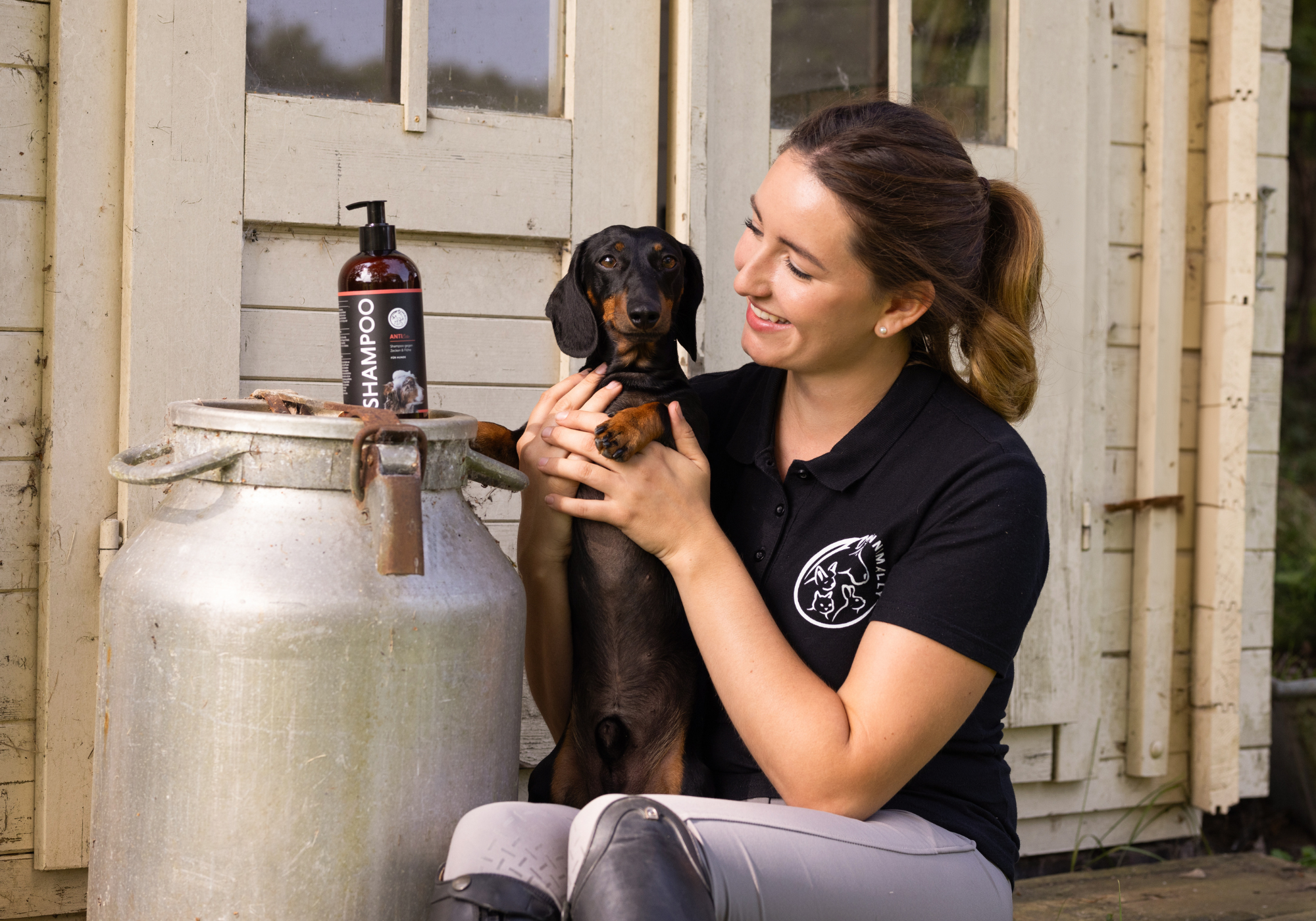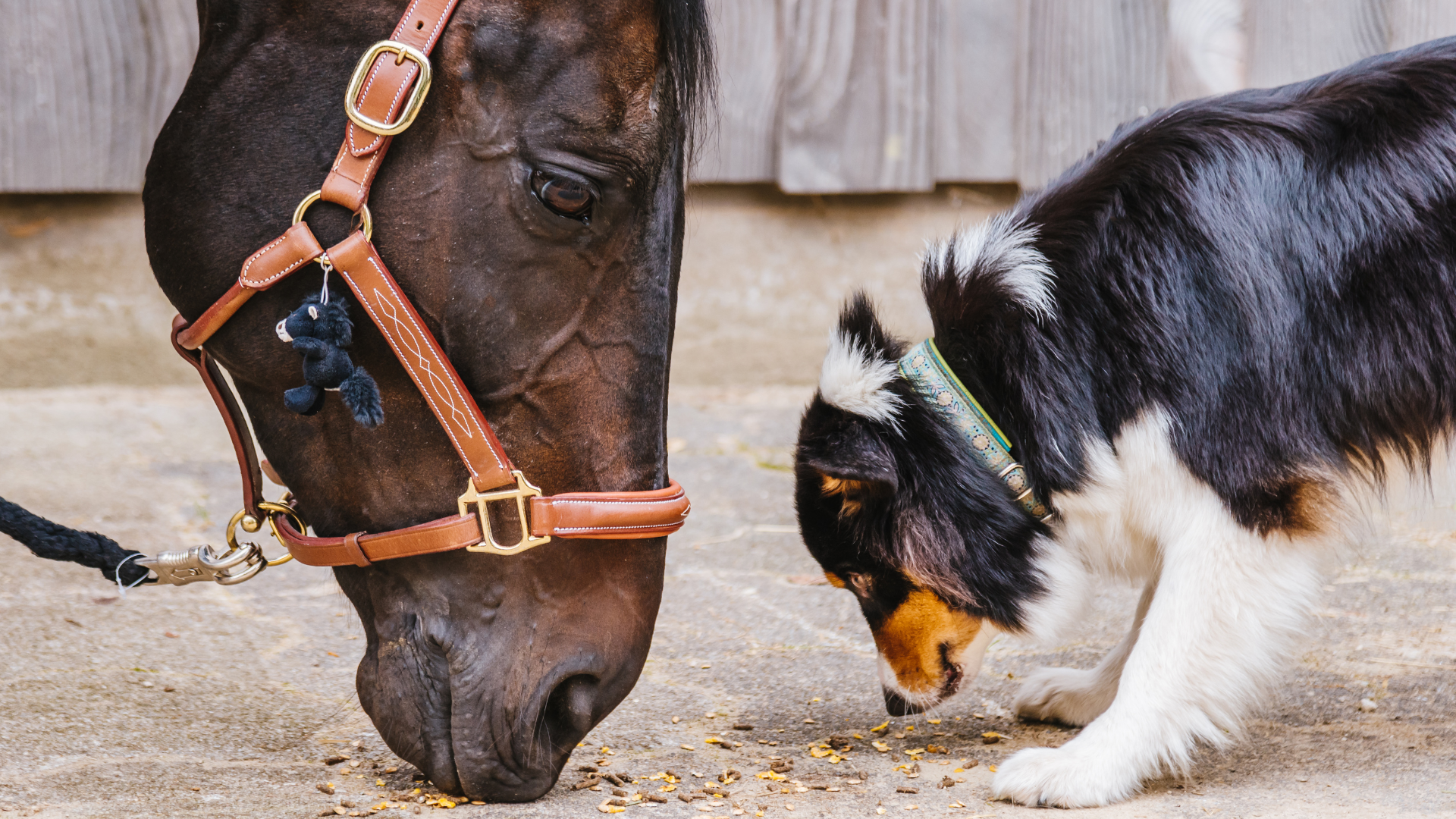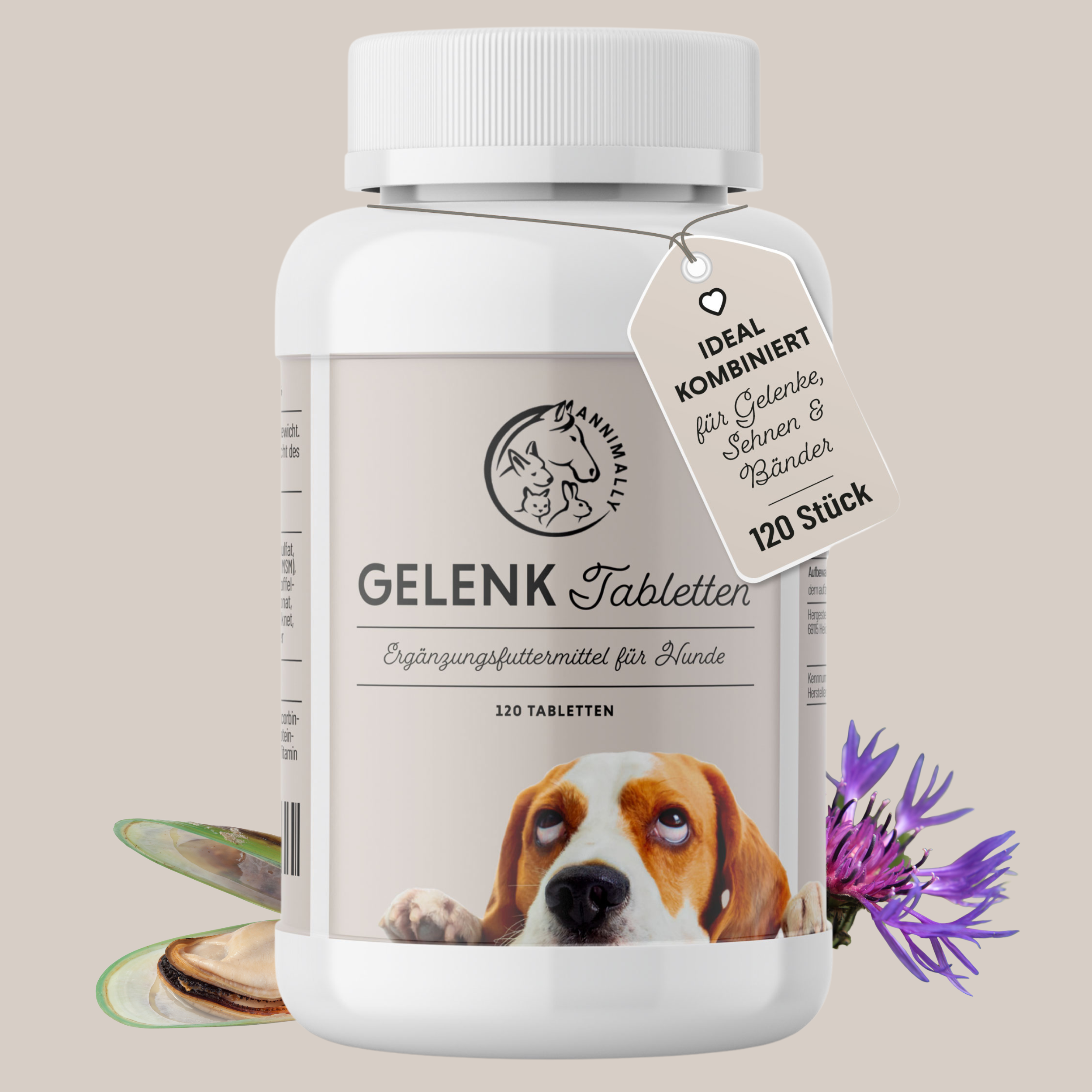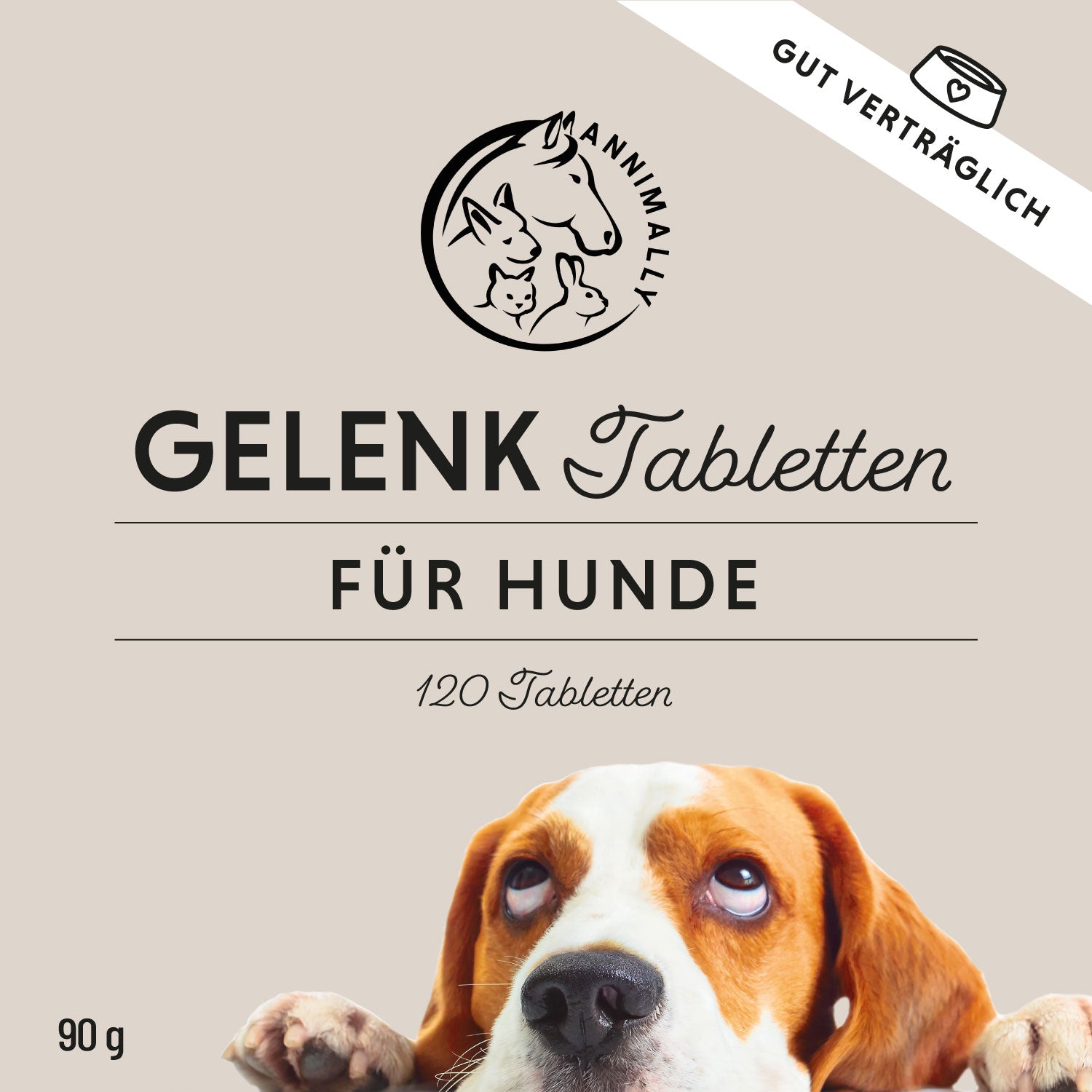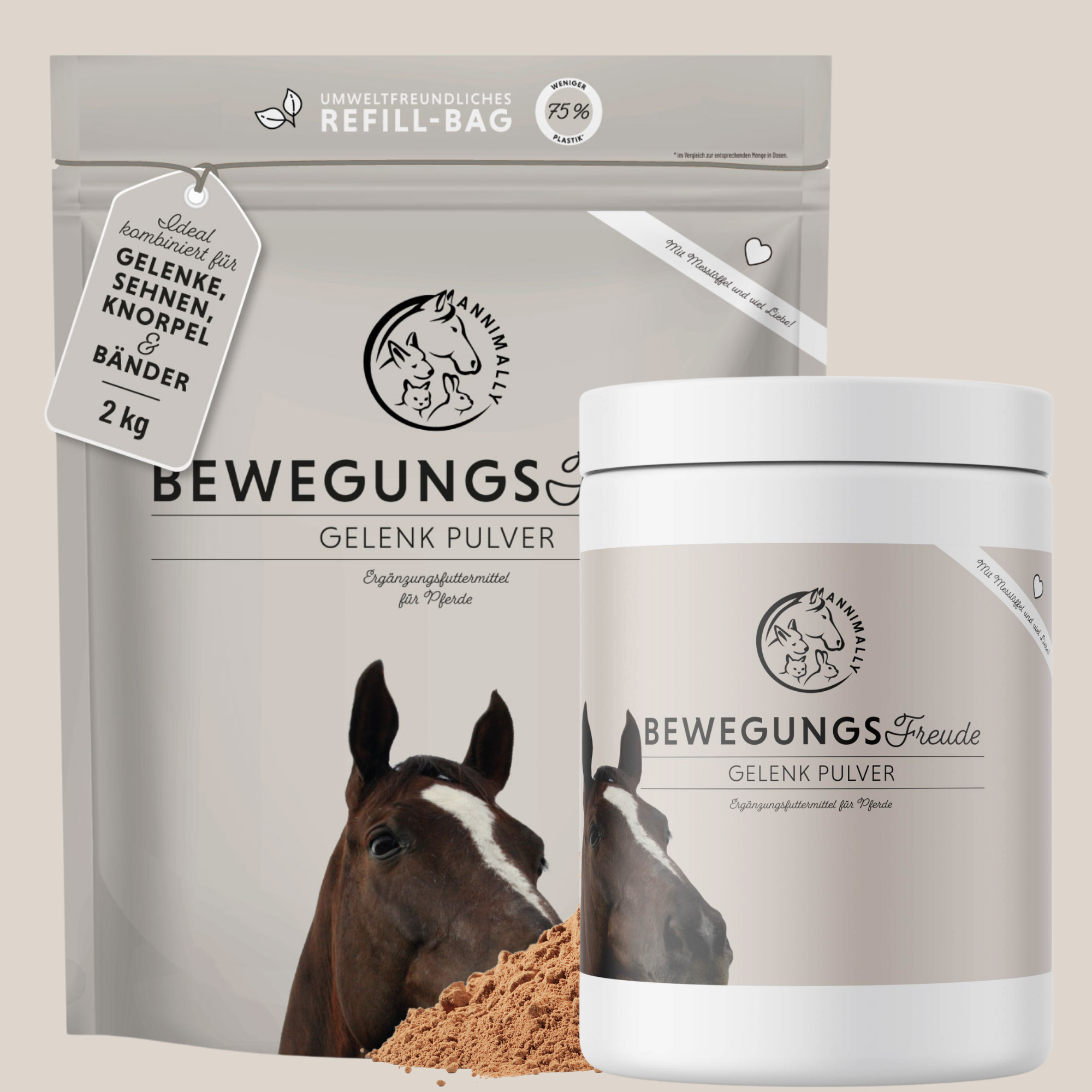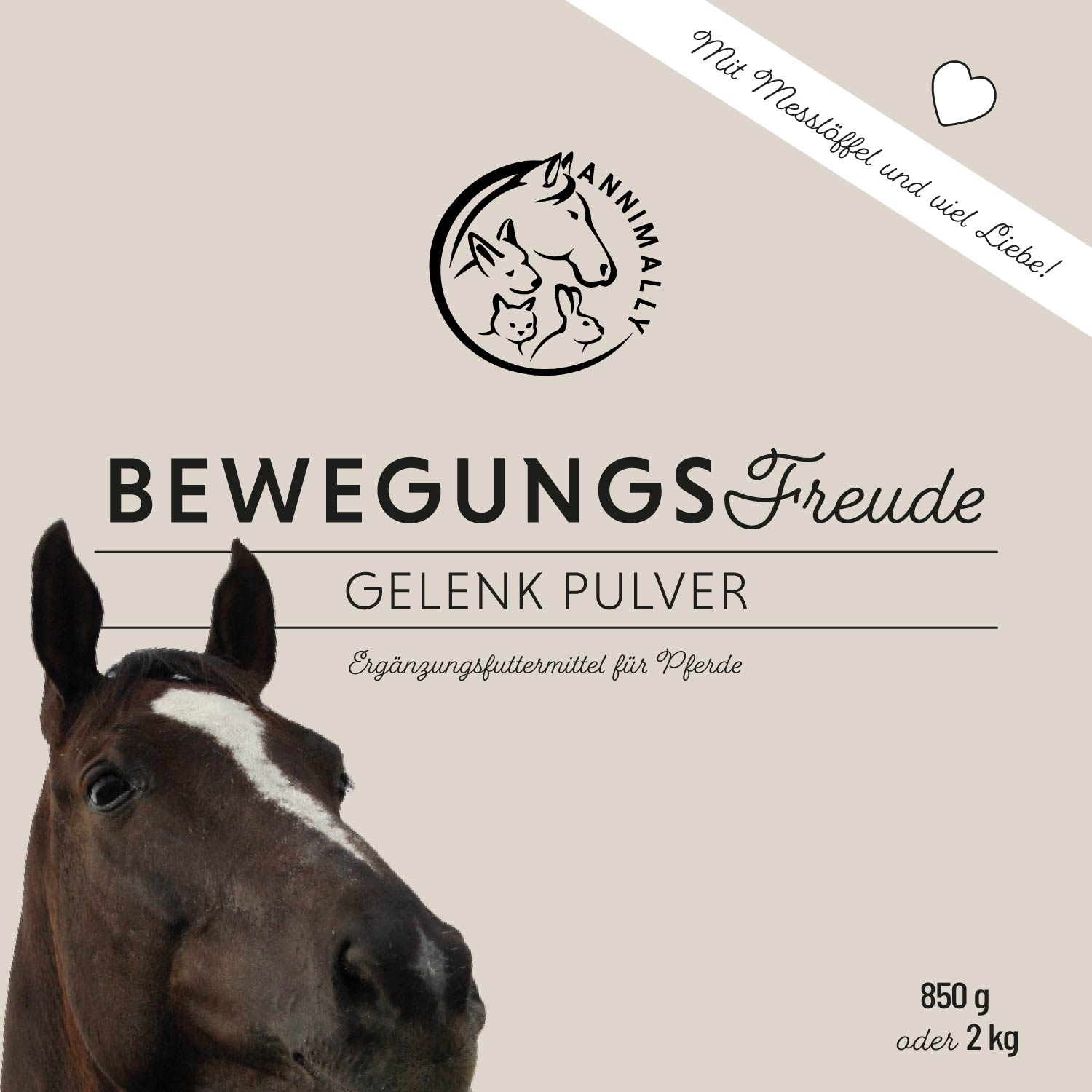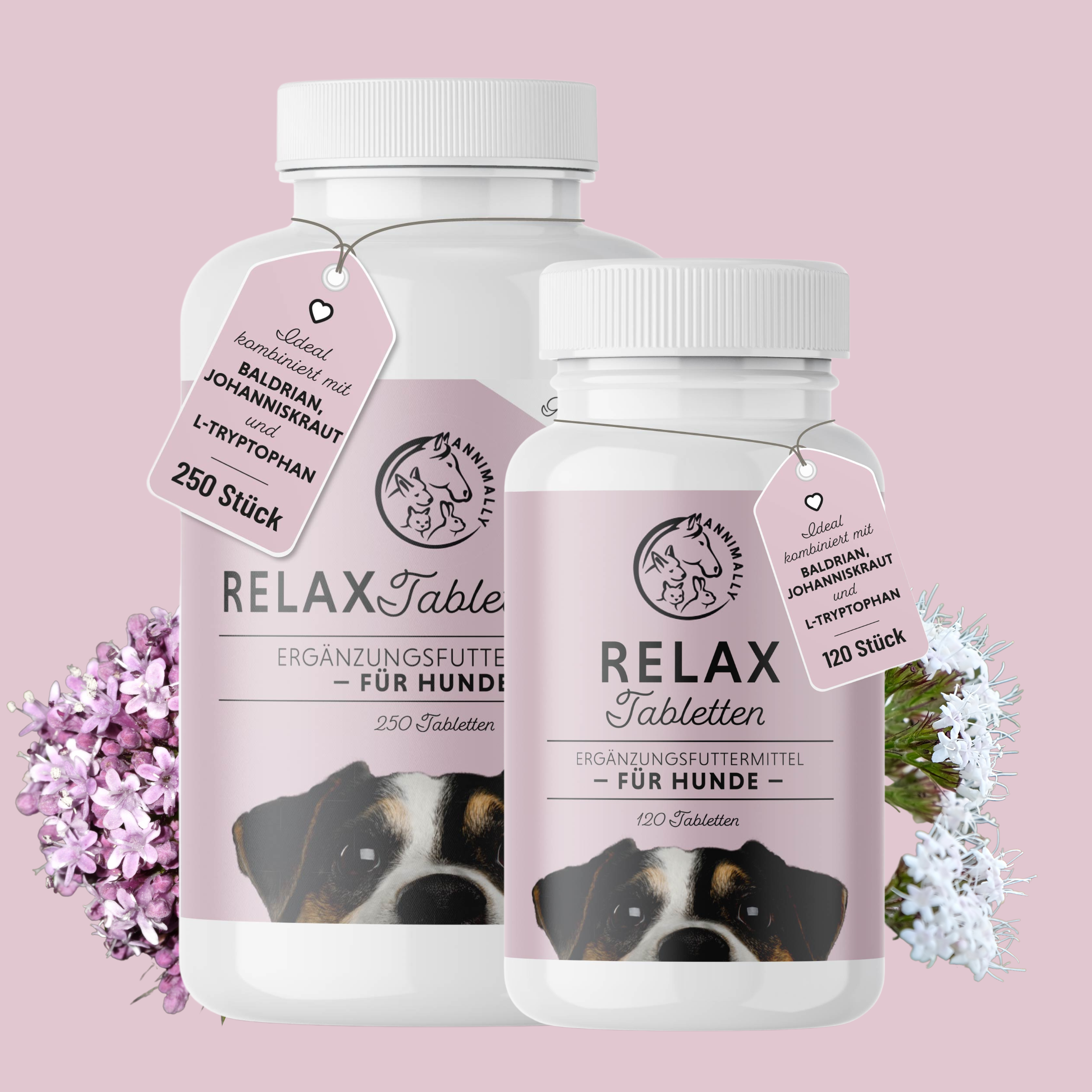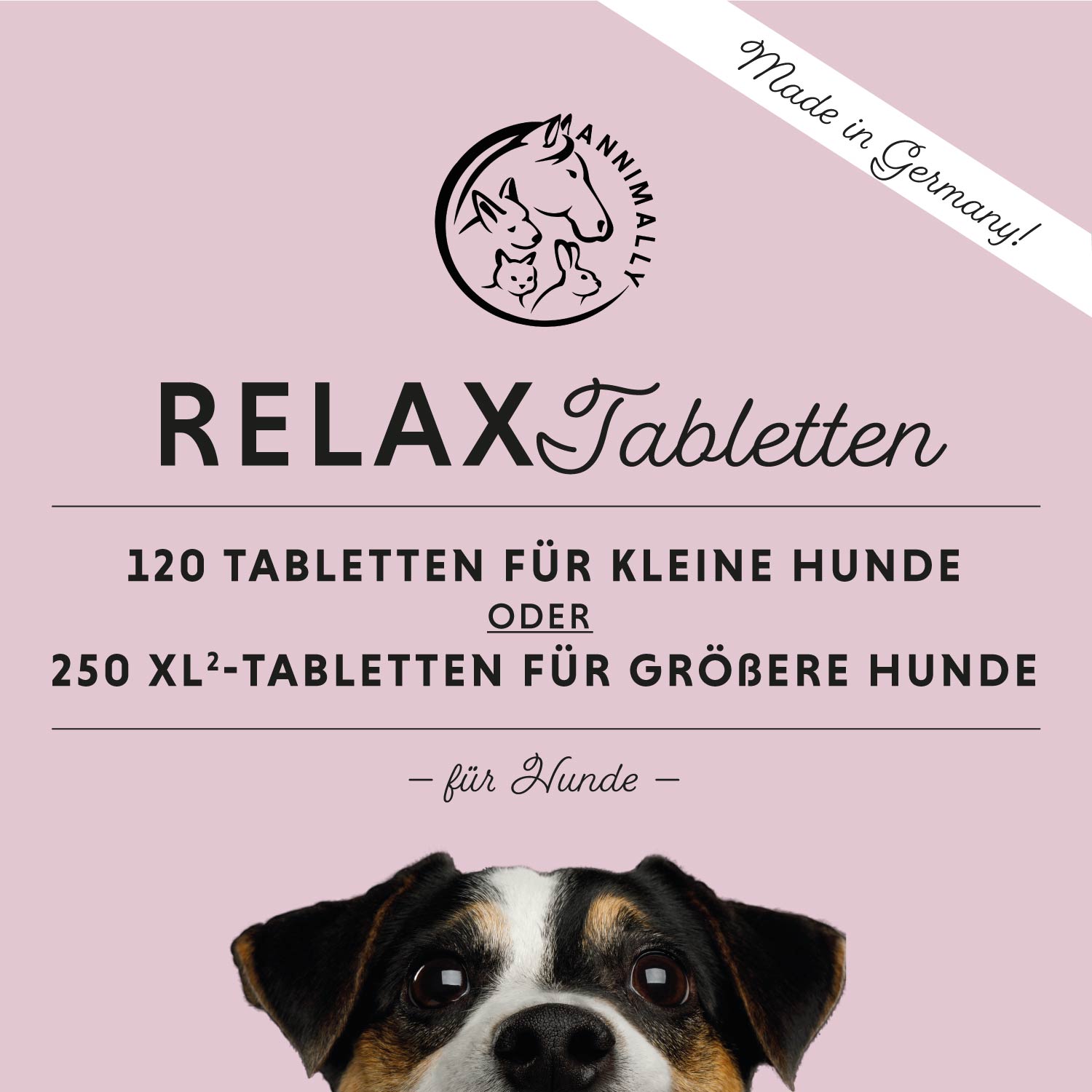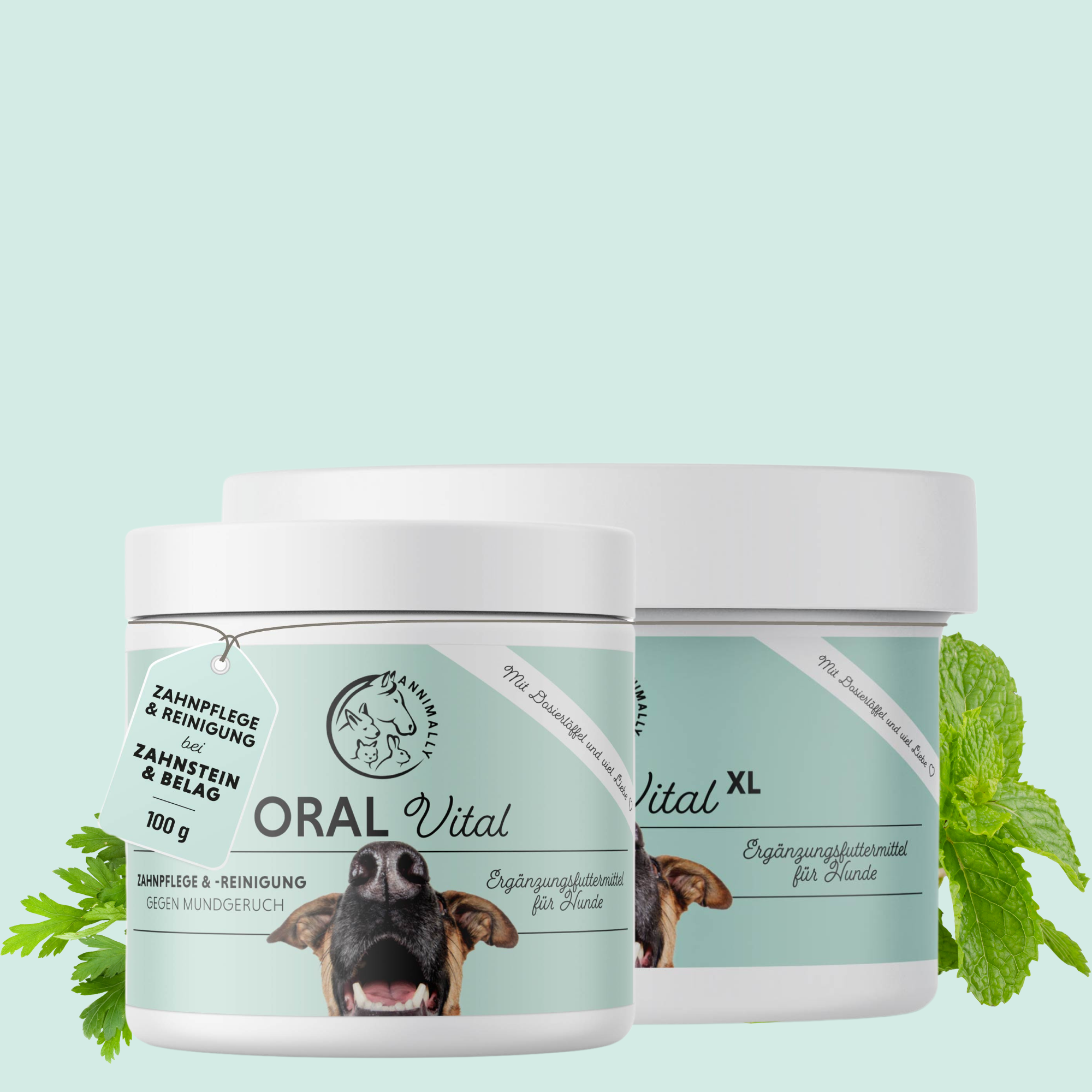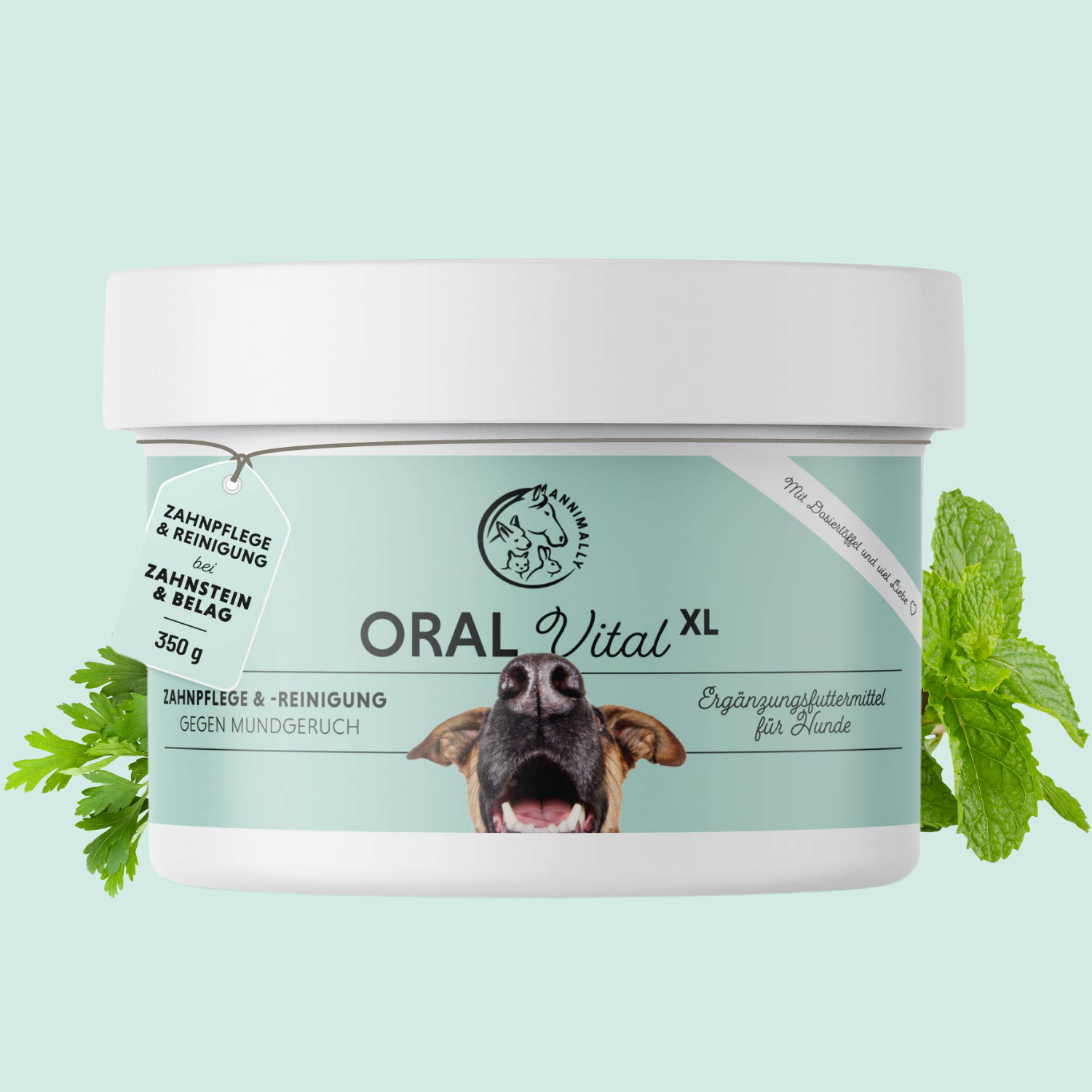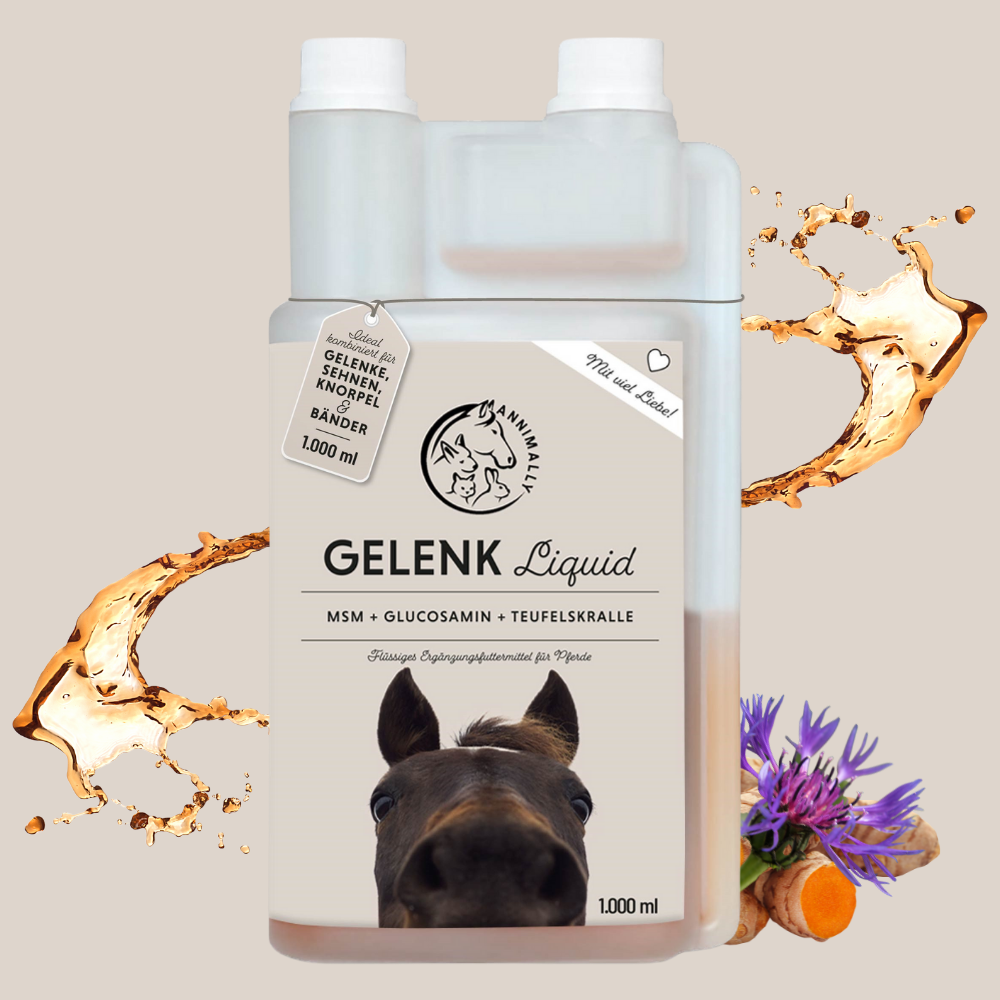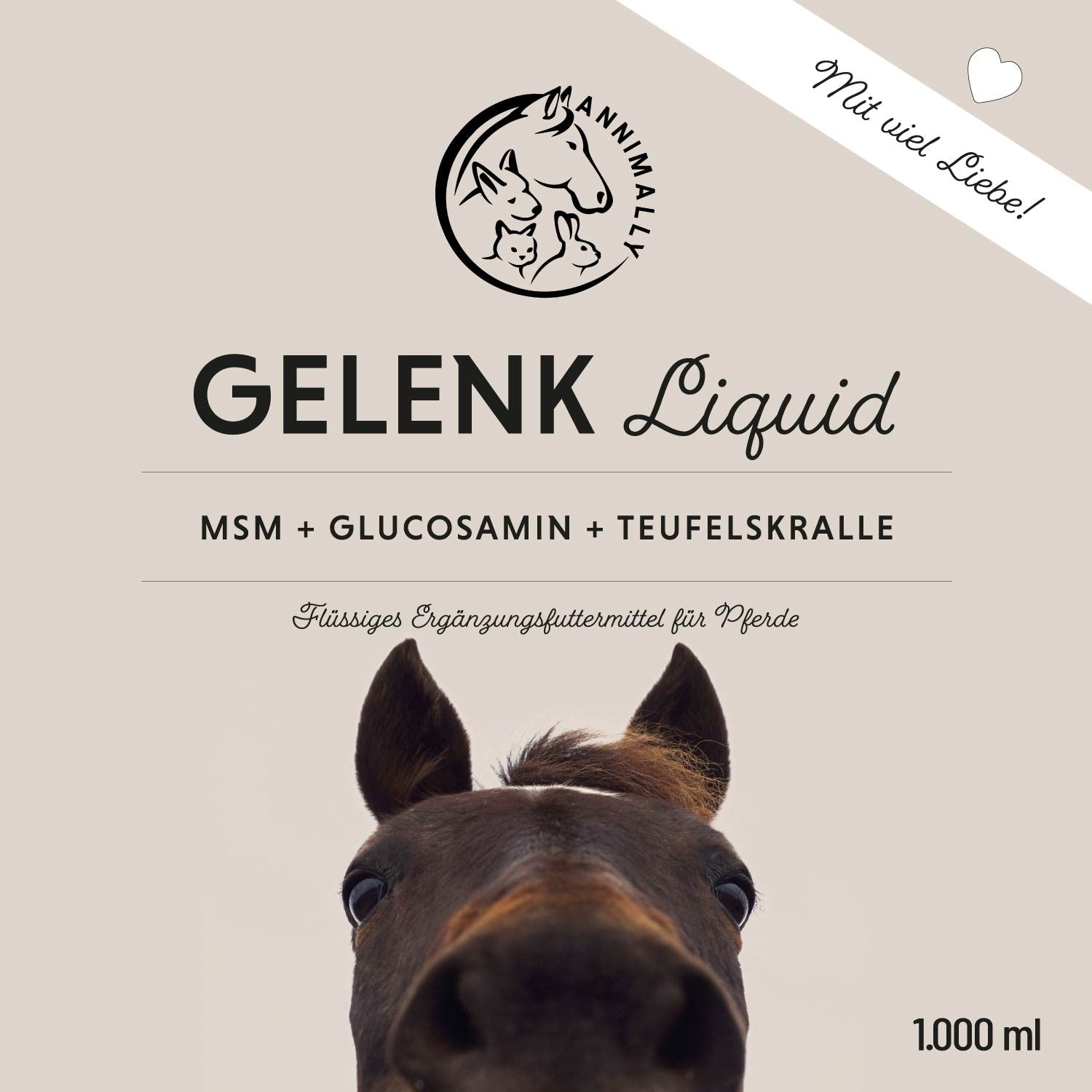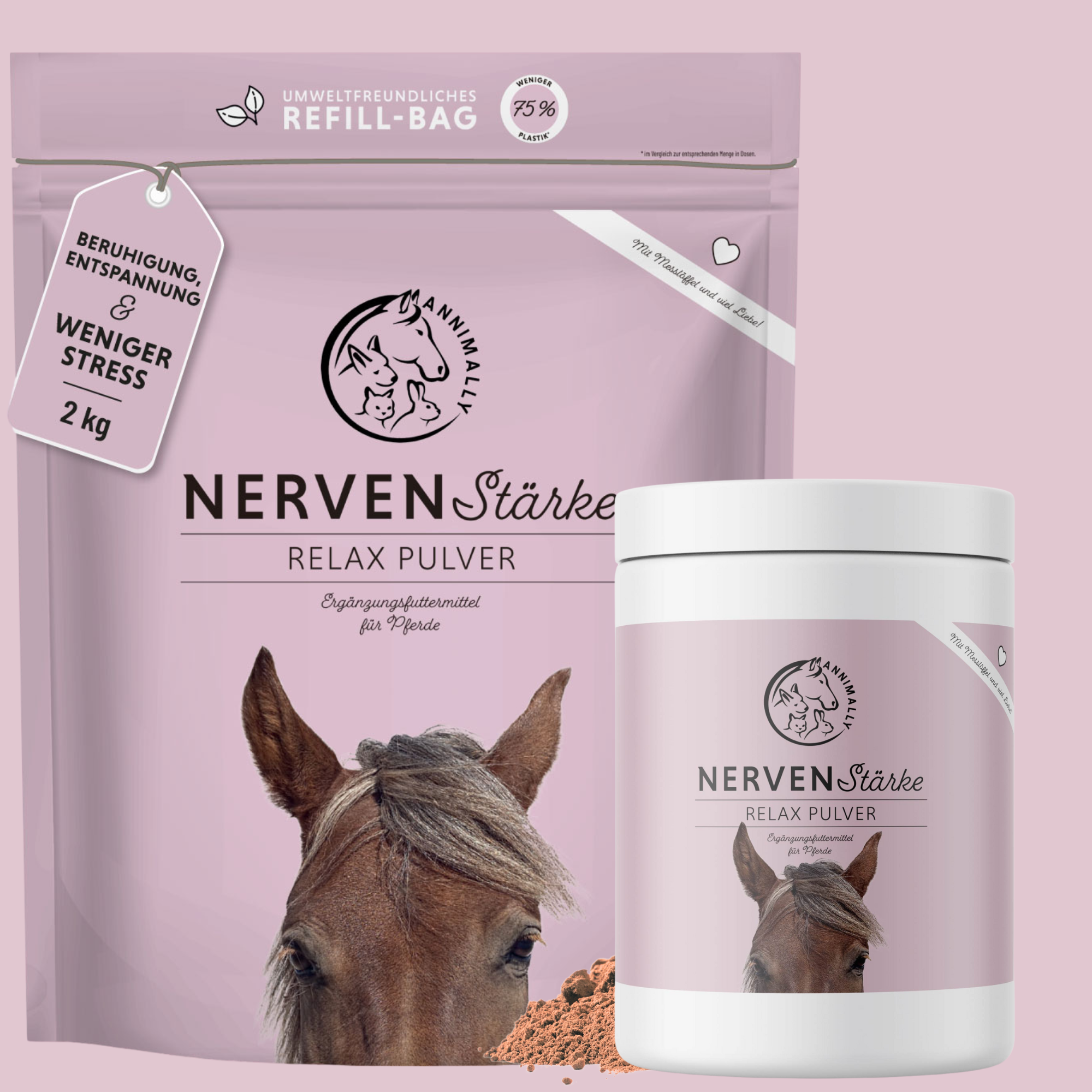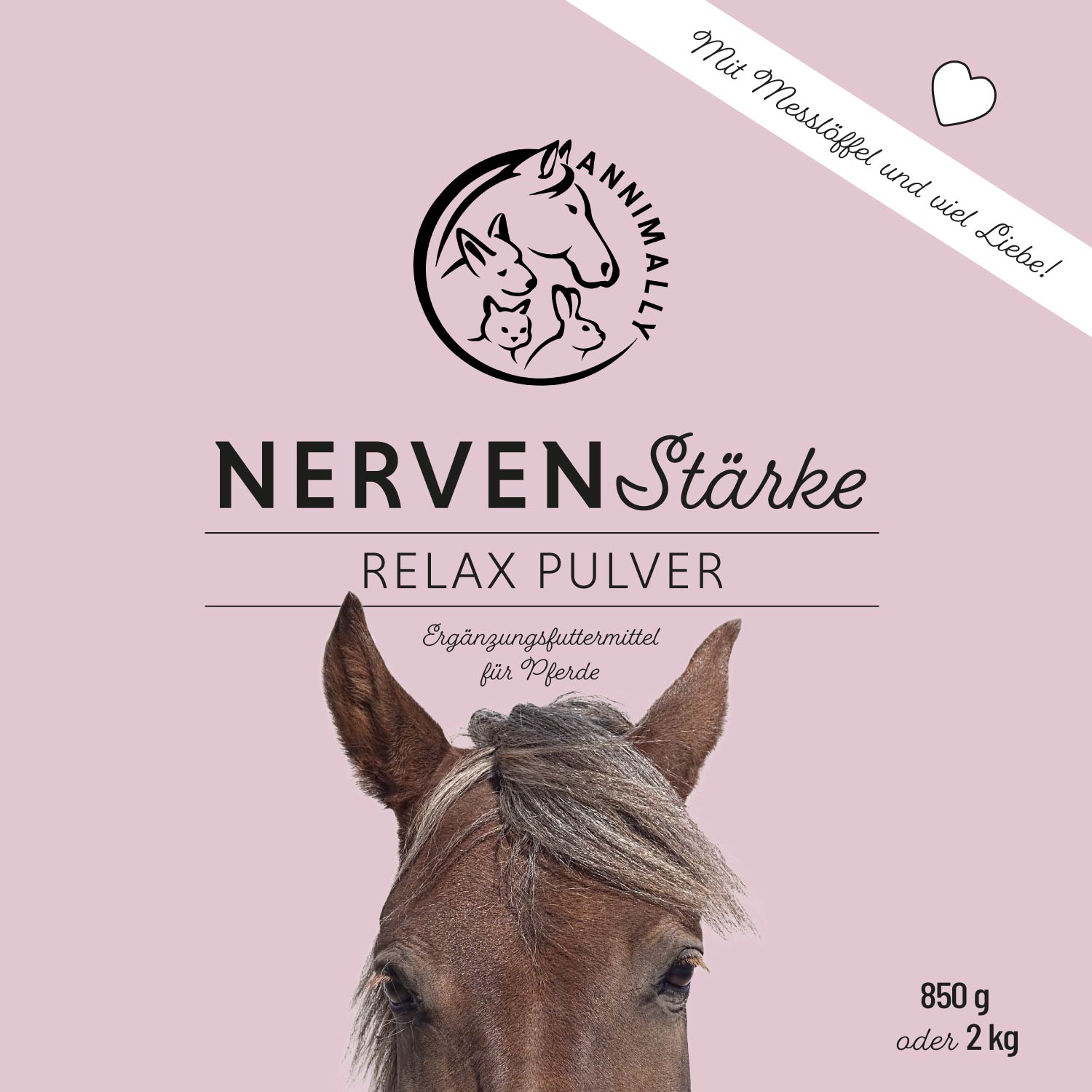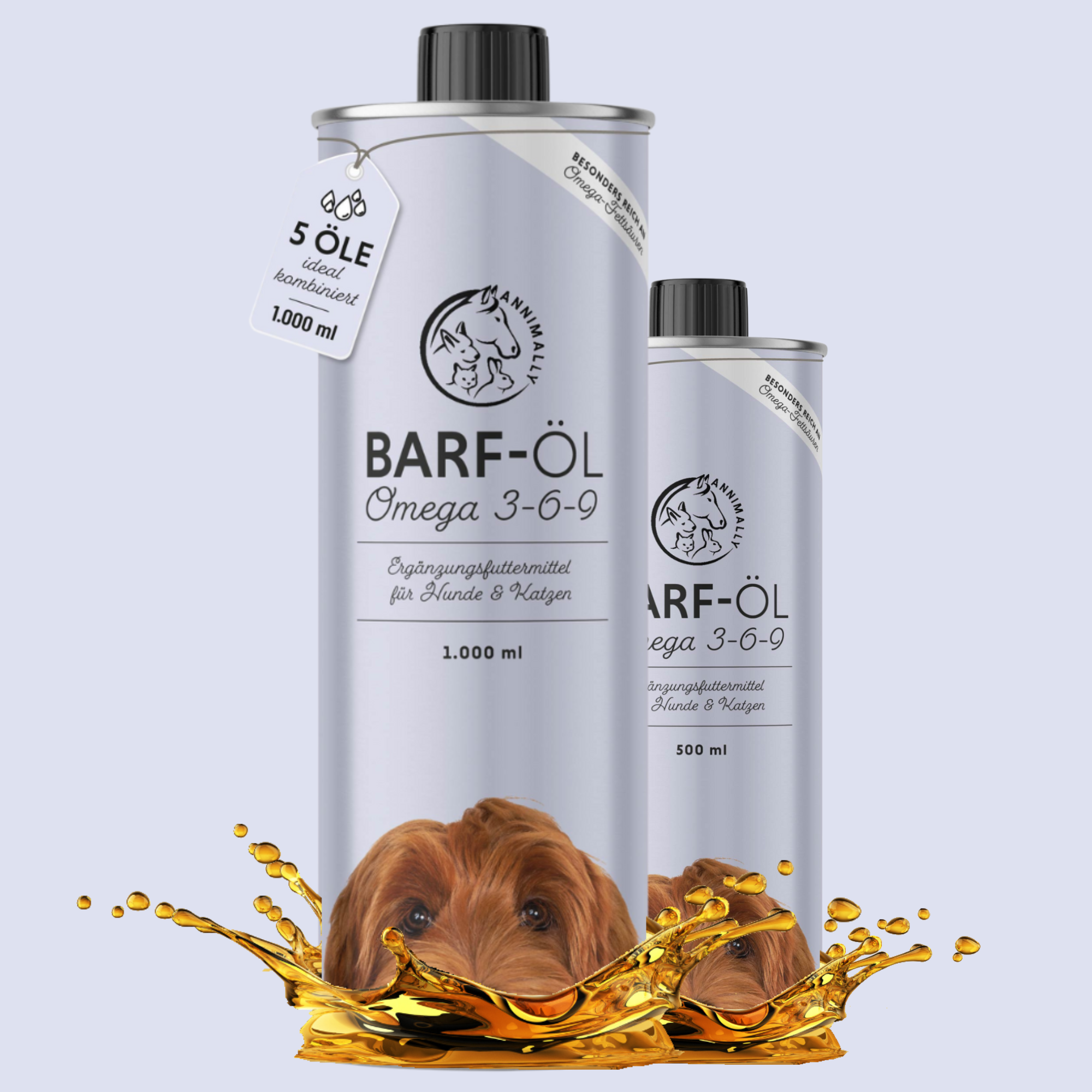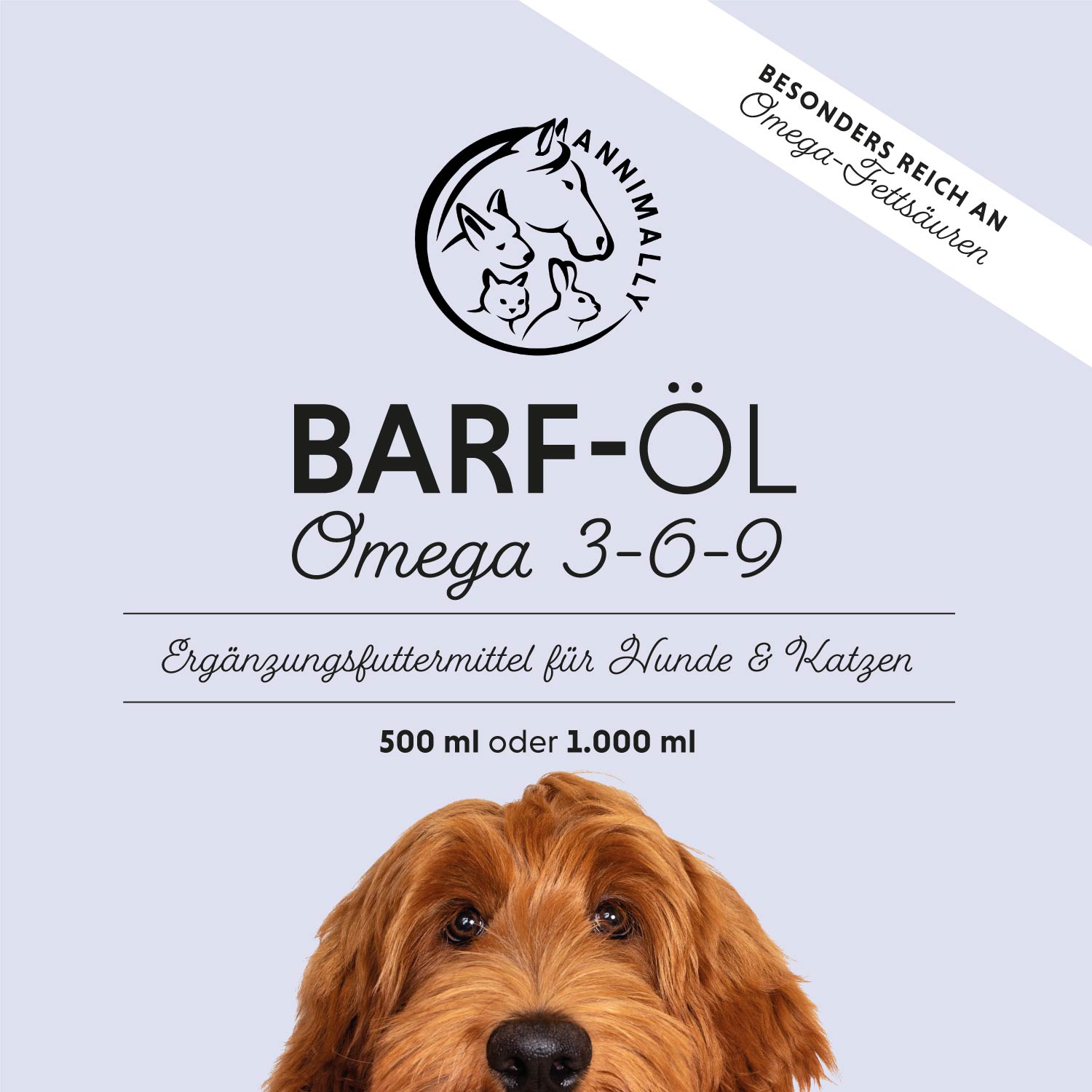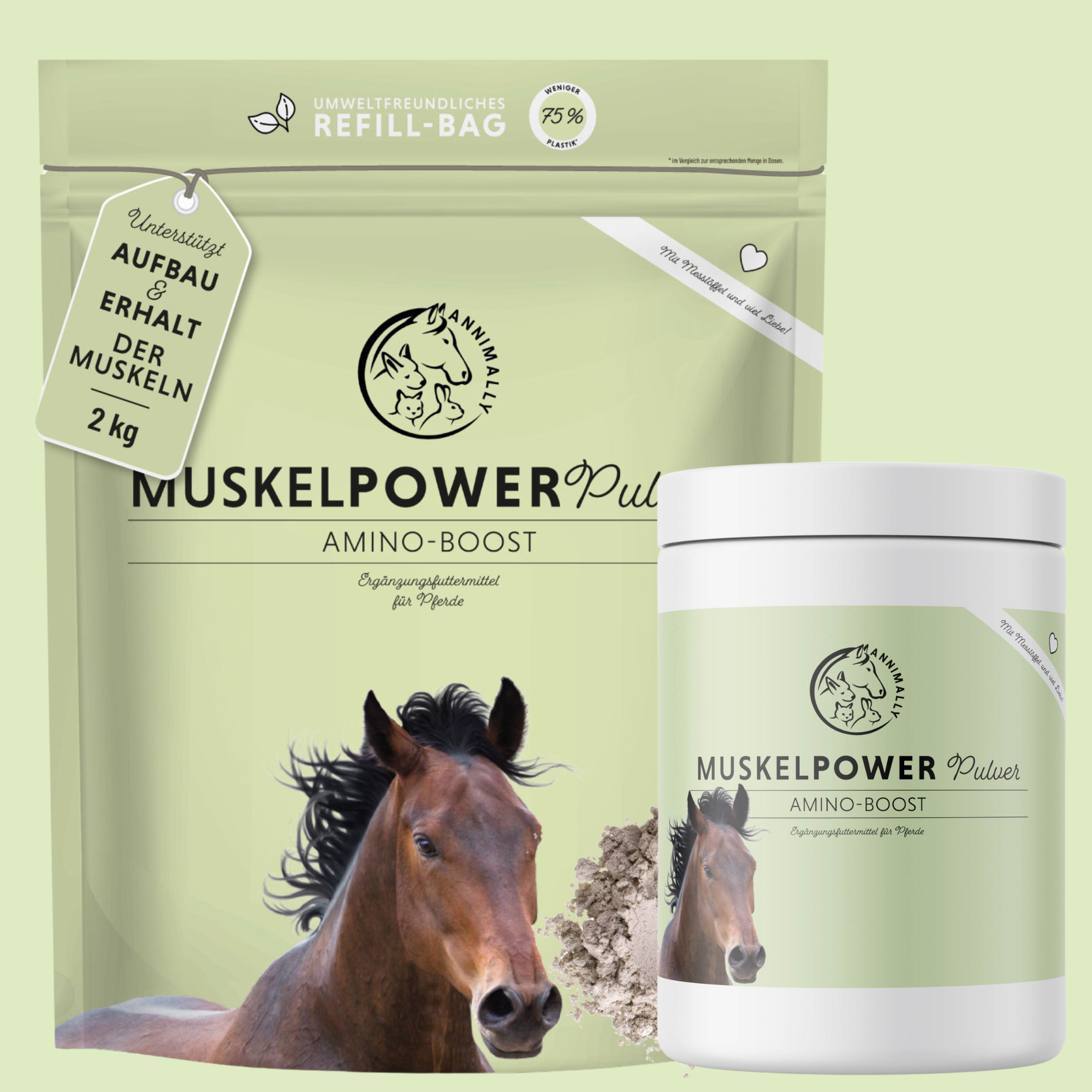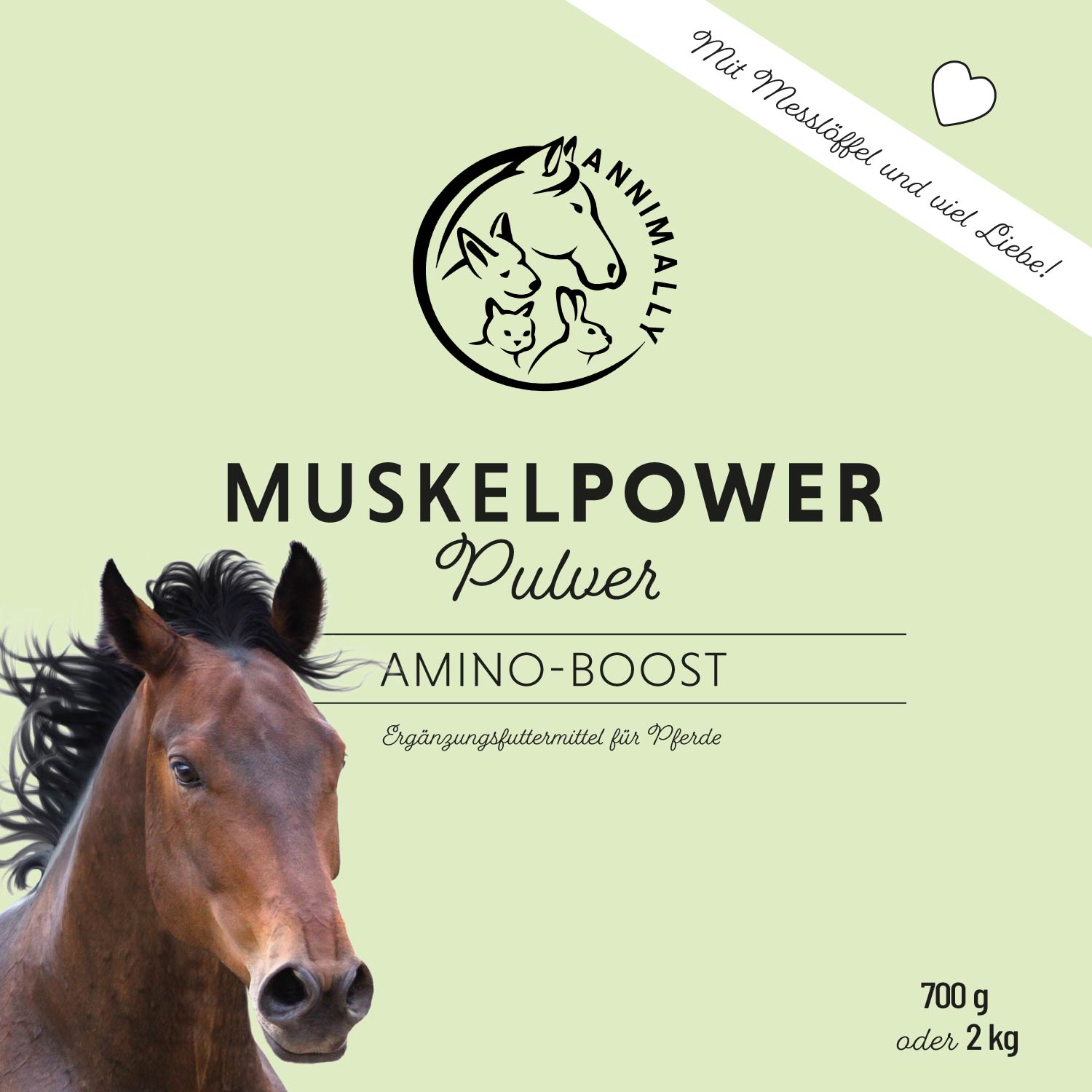
Leaky Gut Syndrome in Dogs: What is it and how do I recognize it?
Does your dog suffer from chronic digestive problems, recurring skin rashes, or sudden food intolerances? Then you may have heard the term "leaky gut." This so-called leaky gut syndrome in dogs is an increasingly well-known issue in animal health and can have far-reaching consequences for your four-legged friend's well-being.
In this comprehensive guide, we explain what leaky gut in dogs is, how to recognize it, and what holistic treatment options are available. This article is based on current data and content from veterinary medicine and nutritional science.

What is leaky gut in dogs?
The term "leaky gut" translates to "leaky gut." In a healthy dog, the intestinal mucosa forms a dense barrier between the intestinal lumen (interior of the intestine) and the rest of the body. This protective layer ensures the absorption of important nutrients, water, and minerals, while harmful substances, toxins, pathogens, and undigested food particles remain in the intestine and are excreted in the feces.
In the case of leaky gut syndrome in dogs, however, this intestinal barrier is disrupted. The so-called tight junctions, tiny connections between the cells of the intestinal wall, lose their strength. This results in increased permeability of the intestinal wall – a real problem, because unwanted bacteria, pollutants, and immune-triggering particles now enter the bloodstream. This can trigger a chain of inflammation, allergies, digestive problems, intestinal disorders, and chronic diseases.
The causes of leaky gut in dogs
There are many causes that can trigger gut syndrome in dogs. These include:
1. Incorrect nutrition of your dog
An unbalanced or industrial diet with low-quality dry food, high grain content, preservatives, sugar and artificial flavors can lead to irritation of the intestinal mucosa and inflammatory bowel diseases in the long term.
2. Medications
Antibiotics, anti-inflammatories, and worming treatments not only attack pathogens but also the healthy intestinal flora. A disturbed intestinal bacterial balance significantly impairs the function of the intestinal barrier.
3. Chronic stress
Dogs can also experience stress. Separation anxiety, constant restlessness, insufficient rest periods, or excessive demands from training methods can all put a strain on intestinal health.
4. Parasites and infections
Repeated infections or parasites such as Giardia directly damage the intestinal mucosa and contribute to the formation of holes in the intestinal wall.
5. Toxins from the environment and food
Pesticides, heavy metals, chemical cleaning agents or low-quality feed contain toxic substances that can damage intestinal cells.
Symptoms: How to recognize leaky gut in dogs
A leaky gut affects virtually every bodily function. The list of possible symptoms is long and nonspecific, making it difficult to identify:
1. Chronic diarrhea or soft stools:
An imbalance in the intestinal flora and a damaged intestinal wall can lead to your dog's stools being persistently mushy, slimy, or very frequent. Frequent defecation or a sudden urge to go for a walk can also be indicators. Especially if chronic diarrhea lasts for weeks or months, you should definitely have your dog's intestinal health checked.
2. Bloating, abdominal noises and visible abdominal discomfort:
A bloated stomach, excessive intestinal noises (gurgling, rumbling), or frequent grass eating indicate digestive problems. These often arise from an imbalance in the intestinal flora or from the penetration of toxic substances that penetrate the damaged intestinal barrier into the body.
3. Itching, rashes or inflamed skin:
Although the cause lies internally, leaky gut syndrome in dogs often manifests itself through the skin. Itching without visible parasites, eczema, or hot spots can be signs of internal irritation caused by penetrating pollutants or allergens that would otherwise have stayed out if the intestinal barrier were intact.
4. Ear infections and frequent head shaking:
Recurrent ear infections—especially in dogs with floppy ears—may be related to a systemic inflammatory reaction triggered by a leaky gut. Here, too, the damaged intestinal mucosa indirectly affects other parts of the body.
5. Food intolerances or sudden allergies:
A dog that has previously eaten everything without problems suddenly becomes sensitive to certain food components? This could be a sign of a permeable intestinal epithelium. Undigested particles can enter the body through the damaged protective barrier and activate the immune system—leading to new or worsening intolerances.
6. Frequent licking of paws or skin:
Compulsive paw licking, especially at night or after a walk, can be related to itching—which, in turn, can be linked to a disrupted intestinal barrier. Even if no external wounds are visible, internal irritation can lead to such behavior.
7. Lack of motivation, fatigue and reduced resilience:
If your dog becomes withdrawn, plays less, or seems easily exhausted, it could be due to limited nutrient intake. Leaky gut often leads to insufficient absorption of important nutrients and vitamins by the body—which, in turn, impairs overall metabolism and well-being.
8. Poor coat condition and hair loss:
Is the coat becoming dull, falling out, or appearing thin? This could also indicate digestive problems. Only a healthy gut supplies the skin cells with all the necessary building blocks for a shiny, strong coat. Deficiencies due to incomplete nutrient absorption are also common causes.
9. Noticeable changes in behavior:
Some dogs with leaky gut syndrome also exhibit psychological changes: They suddenly become anxious, irritable, or particularly clingy. The reason for this lies, among other things, in the so-called gut-brain axis principle—a close connection between the gut and the nervous system, which has also been well researched in humans.

The role of the intestine in your dog's health
Your dog's intestine is far more than just a digestive organ. It is the center of the immune system. Around 70–80% of all immune cells are located in the intestinal mucosa. If the tight junctions are weakened over a long period of time, the immune system becomes unbalanced.
The result: The body reacts excessively to harmless food components, which can lead to chronic inflammation, allergies and autoimmune diseases.
Diagnosis: How is leaky gut diagnosed in dogs?
Although Leaky Gut Syndrome is not always immediately recognizable in a classic blood count, there are several ways to diagnose it:
-
stool examination on the composition of intestinal bacteria, pH value, digestive residues
-
Blood tests on markers such as zonulin, a protein associated with tight junctions
-
Allergy tests and IgG4 antibodies
-
Microbiome analysis to identify colonization
A specialized veterinarian or animal health practitioner with a focus on intestinal health can help you make the appropriate determination.
Treatment: What helps against leaky gut in dogs?
Successful treatment of leaky gut syndrome in dogs requires a holistic approach that takes into account different levels:
1. Dietary change
Switch your dog's diet to high-quality, natural foods. Avoid processed foods with additives and instead opt for fresh, nutrient-rich ingredients. Choose easily digestible proteins like cooked chicken or turkey, add fiber-rich vegetables like pumpkin or parsnip, and avoid allergenic grains.
An adapted dietary change can help eliminate irritants, reduce irritation of the intestinal mucosa and regenerate it.
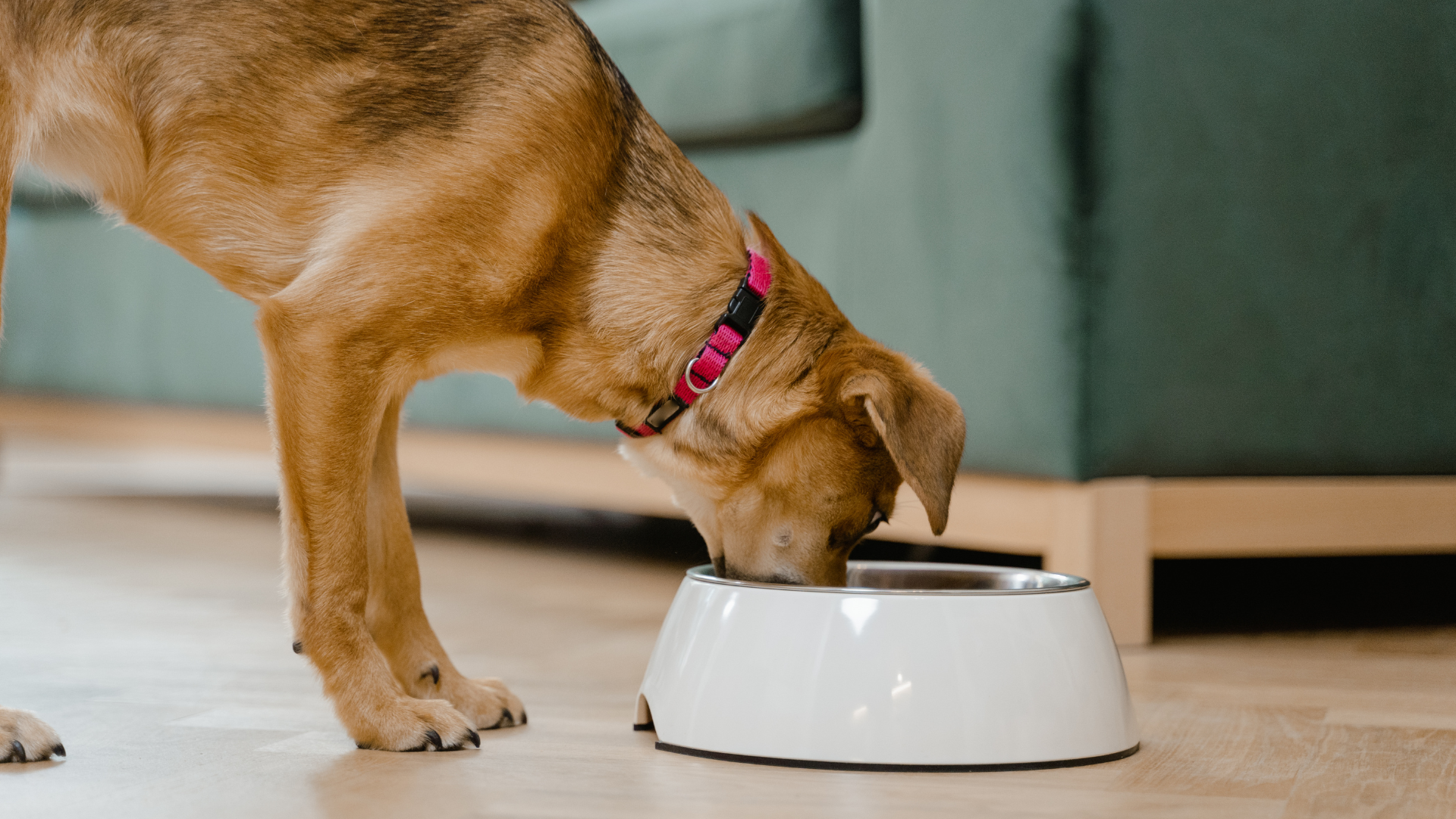
2. Build up probiotics and intestinal bacteria in a targeted manner
The targeted use of probiotics supports the rebuilding of a healthy intestinal flora. These supplements contain beneficial intestinal bacteria that stabilize the intestinal environment, counteract inflammation, and eliminate pathogenic germs. All for the benefit of intestinal health.
Look for products containing different strains of bacteria, such as Lactobacillus acidophilus or Enterococcus faecium, and use them regularly for several weeks.
3. Natural dietary supplements for intestinal cleansing
Supplement your diet with natural substances that promote healing of the intestinal lining. L-glutamine is an important amino acid for mucosal regeneration. Zinc supports the immune system and has anti-inflammatory properties. Collagen contributes to the structural integrity of tight junctions.
Plant substances such as curcumin or omega-3 fatty acids also have anti-inflammatory effects and can sustainably improve intestinal health.
4. Detoxification and prevention of harmful influences
Targeted detoxification can relieve your dog's body and accelerate healing. This includes natural remedies such as zeolite, healing clay, or milk thistle, which bind and eliminate toxins. At the same time, you should avoid environmental pollution: Use biodegradable cleaning products, ensure your dog's food is uncontaminated, and reduce the use of medications to the necessary minimum.
Prevention: How to keep your dog's intestines healthy
A healthy gut is the best prerequisite for your dog's long-term vitality. By ensuring a balanced and fresh diet without artificial additives, you lay the foundation for stable gut health. Give your dog plenty of exercise, mental stimulation, and restful rest periods to avoid stress – as this also affects the gut.
Regular use of natural probiotics or fermented products like kefir or sauerkraut can help permanently strengthen the intestinal flora. It's also a good idea to have your dog's stool analyzed regularly to detect imbalances early on. Also, carefully observe the consistency, color, and smell of the stool—this provides important clues about the health of the digestive system.
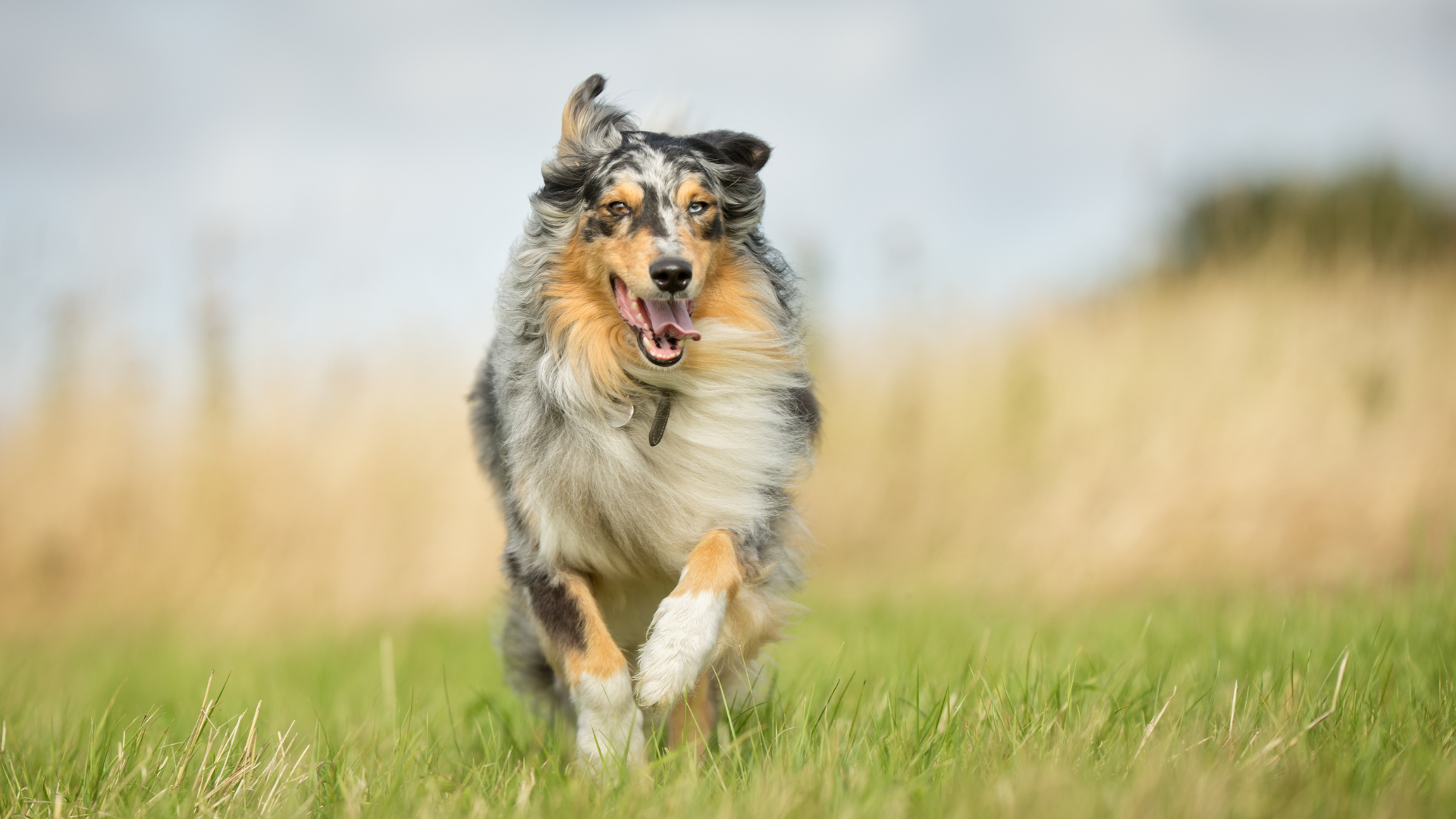
Conclusion on Leaky Gut Syndrome
Leaky gut in dogs is a complex syndrome that can have profound effects on your pet's health and well-being. The disruption of the intestinal barrier allows substances to enter the body that have no place there, resulting in skin problems, allergies, digestive disorders, and chronic inflammation.
The good news: With a targeted, cause-oriented approach, you can make a big difference. Focus on natural food, probiotics, gut health, and a loving environment. This way, you can help your dog recover—from the inside out.
A notice: This information is not a substitute for a visit to the vet, but is intended to help you better understand your dog's cues and make informed decisions.

